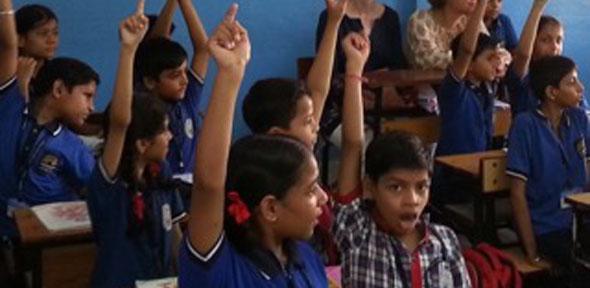
Scientists at the University of Cambridge are to explore how India can provide a high-quality multilingual education system to primary school pupils. A research project led by Professor Ianthi Tsimpli will measure 1,600 children's language, literacy and numeracy skills over a two year period in the urban slums in Delhi and Hyderabad, as well as in remote rural areas of the state of Bihar.
The importance of improving learning outcomes in primary school education has been in focus in India ever since the Right to Education Act (RTE) came into force on 1 April 2010. One of the primary aims of the education policy of the country is to provide useful and elementary education for all children in the 6-14 age group.
A research project led by Professor Ianthi Tsimpli, and funded by the Economic and Social Research Council (ESRC) and the Department for International Development (DFID), will measure 1,600 children language, literacy and numeracy skills over a two year period in the urban slums in Delhi and Hyderabad, as well as in remote rural areas of the state of Bihar, where the last decade has seen some dramatic changes in the number of students enrolled in the state (a ten per cent increase since 2006 means almost all children are now enrolled in school), in school infrastructure and in the gender parity index which is now higher than the national average.
The cross-international team, from both the UK and India, will focus on assessing a range of factors affecting educational quality in India including language inequalities (such as the availability of mother-tongue support in school), teaching practices and their effect on the development of critical thinking and problem solving abilities, and on structural and social factors.
Professor Tsimpli, from the Department of Theoretical and Applied Linguistics at Cambridge, said: “Bilingualism and multilingualism have been shown to enhance learning skills in children raised in western societies but Indian children do not always benefit from the same advantages, for reasons that urgently need to be investigated.”
“This research will explore how the complex social, economic and geographical issues affect the delivery of quality multilingual education in India, whilst it will also provide valuable insights of relevance to the education of bilingual children in the UK.”
